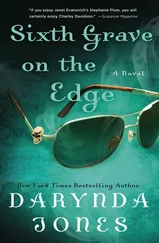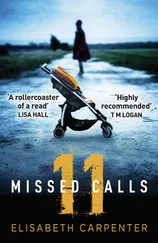“Yes!” hissed Danielle. “It is my love, no doubt!” She took the book from the shelf and dropped on to the lumpy settee. He had not wanted her to look in this Bible, but she could not let it be. She flipped through the thin, yellowed pages and came to a place that had been thumbed to near illegibility.
It was in the Book of Trials. She read:
When Pilate saw that he could prevail nothing to save the man Jesus and that Jesus was indeed to die to please the crowd, he offered the execution of noble captives, to have the man’s wrists slashed with sword and thus causing him to bleed quickly unto death. But from the crowd called up the man Andrew, son of Phinneas the shepherd, who said, Jesus must suffer for his words! Crucify Him! The crowd joined in the mocking call, He must suffer for his words!
“What has this to do with you, Alexandre?” Danielle wondered aloud. “I don’t understand. But I must, to help my dearest lover!”
There was thumping at the door, and a woman came into the kitchen. It was Tillie. She saw Danielle through the doorway, and her lips drew back in a snarl. “Bitch!” she shrieked. “Come back to fix my shoe and what do I find here? One of William’s whores, brazen and bold as a sow, sitting on my very own sofa, she is! Waiting for him to come home, eh? Waiting and thinking I wouldn’t be back soon?”
Danielle stood slowly. There would be no contest with this woman, but she didn’t care to kill her if she didn’t have to.
“I’m sorry,” she said. “I’ve made a mistake. I thought this was the home of my cousin Randolph Sykes. I beg your pardon, miss.”
But the woman was not to be appeased, and she reached for a hatchet that was leaning against the stove.
Danielle held out her hand. “Miss, just let me go without a fuss. It would be for the best.”
“What’s the best is that William quit his whorin’. What’s best is you die quickly and keep your trap shut about it.” Tillie ran her wrist across her nose, sniffed, and stepped into the parlour, hatchet raised.
Calmly: “Put it down.”
Tillie’s mouth opened wide; she growled and stepped closer. “Down middle o’ your head, that’d look good! Part your hair right down the middle!”
The hatchet swung out in an arc, and down towards Danielle’s forehead. Danielle stepped deftly to the side and the settee received the full force of the blow. Feathers flew.
“Damn it!” screamed the woman. She tugged the hatchet free and spun on Danielle again. Danielle retreated into the kitchen. She would wait on the street, in the shadows, and come back when Alexandre did. She’d been invited into the building so entering would be no trouble. She felt a strange sympathy for this woman, who, she supposed, cared for Alexandre in her own ignorant way.
Suddenly there was panting on the steps, in the hall, outside the door, and she whipped about to see Alexandre standing there, clutching the doorframe and panting. He looked past Danielle to the woman with the hatchet.
“What’s happening here?” he cried. “I could hear you wailin’ from the street below! What you doing now, going to kill some woman who looks like she just got lost?”
“Alexandre,” whispered Danielle in amazement.
But the man brushed past her and flew at Tillie, snatching for the hatchet as he clutched her hair with his other hand. “You can’t be trusted with nothin’ or nobody! Oughta stick you in the asylum, I oughta! Give me the damned hatchet or you’ll find yourself up for murder!”
Tillie jumped away, stumbled against a straight-backed chair and fell to the floor. Alexandre — William — leaped again and grabbed for the weapon. She swung it at him and missed his face by a hair’s-breadth.
Danielle stepped into the parlor. She could be cut, it wouldn’t matter. But she would not let Alexandre be killed. Not again. Even in this incarnation, even as this crude, enraged fruit peddler, she would save him at last. She reached for the wavering hatchet just as the man snatched it from the woman on the floor.
“Get back!” he cried to Danielle.
Tillie was up on her feet in a second and latched on to Alexandre’s arm with her teeth. He screamed, and jerked away from her, leaving a chunk of flesh dangling from her lips. She dove at him again, snapping, snarling. He dropped the hatchet and kicked at the woman, shoving her back and away. But still, she came for him.
“I’m sick of you!"’ he wailed. “Why can’t you trust me?”
Danielle watched in horror as the couple stumbled past her into the kitchen. Tillie grappled the pot from the stove, lifted it to slam it into Alexandre’s head.
“Here’s to you, William !” she screamed.
And Danielle snatched up the hatchet in a flash, and buried the blade deep into Tillie’s face. The woman fell through the door and down the stairs to the landing, fully dead. Alexandre followed, his face twisted with both horror and victory. He pulled the hatchet from her and stared at the carnage.
Every flat door seemed to open at the same moment. Screams and curses followed, with fingers pointing at Alexandre and Danielle. “Murderer!” a man cried. “Killer!” screamed a child. Men flooded from their flats and took hold of Alexandre.
Danielle, dumbfounded, retreated to the apartment and escaped through the window into the mist of the night.
William Kemmler, after intense interrogation by the authorities, confessed to the murder of his common-law wife, Matilda Ziegler, and was sentenced to death by the state of New York. He was transferred to the prison in Auburn, where in August of 1890 he awaited his execution.
But the execution was to be a civil and humane one, the first one in which electricity would be used to snuff out the life of the convicted. A chair had been built of oak and electrical circuits, and tested on animals to make sure the death would be humane.
Though there had been arguments between the two leading moguls of electric power, Thomas Edison and George Westinghouse, as to which of the currents — Edison’s “Direct Current” and Westinghouse’s “Alternating Current” — it came to be through some underhanded manipulation that Edison assured that AC current would be used for the electric chair. Although Westinghouse refused to sell his equipment to the prison for the death machine, Edison arranged for some used equipment to be purchased without his competitor’s knowledge and made into the chair. This, Edison knew, would seal in the minds of Americans that AC was deadly, and so DC should be used in homes. Men at Auburn prison as well as reporters in their daily and weekly newspapers began joking that a man put to death in the electric chair would be said to have been “Westinghoused", a term that horrified the developer of the alternating current.
None of this mattered to William Kemmler, however, nor to Danielle Boquet. With her charm and grace she had been able to gain welcome into the prison’s main building, but had yet to be invited to enter the separate death house where her Alexandre awaited his execution. She had the power to kill the guards but did not have the power to force them to offer her entrance.
And so she waited. And she fretted. And Marie and Clarice tried to console her. She went back to the tenement flat in hopes she might find a clue, some bit of information to help her love escape yet another death by the great and humane justice-makers of the world, but there was nothing. She took the black Bible and kept it close in her skirt’s pocket, but reading it clarified nothing. Explained nothing.
Danielle stayed by the exterior wall of the death chamber at night, and during the day slept in a closet of the prison’s gasworks. Marie and Glance stayed with her, assuring her that it was not Alexandre and once he was dead she would come to her senses.
Читать дальше












